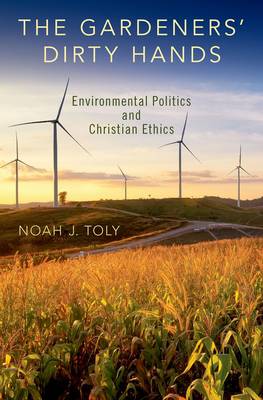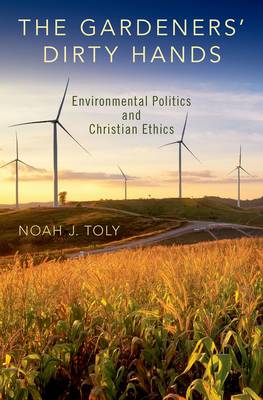
- Afhalen na 1 uur in een winkel met voorraad
- Gratis thuislevering in België vanaf € 30
- Ruim aanbod met 7 miljoen producten
- Afhalen na 1 uur in een winkel met voorraad
- Gratis thuislevering in België vanaf € 30
- Ruim aanbod met 7 miljoen producten
Zoeken
The Gardeners' Dirty Hands
Environmental Politics and Christian Ethics
Noah J Toly
Hardcover | Engels
€ 177,45
+ 354 punten
Omschrijving
The past three centuries have witnessed the accumulation of unprecedented levels of wealth and the production of unprecedented risks. These risks include the declining integrity and stability of many of the world's environments, which face dramatic and possibly irreversible change as the environmental burdens of late modern lifestyles increasingly shift to fragile ecosystems, vulnerable communities, and future generations. Globalization has increased the scope and scale of these risks, as well as the pace of their emergence. It has also made possible global environmental governance, attempts to manage risk by unprecedented numbers and types of authoritative agents, including state and non-state actors at the local, national, regional, and global levels. In The Gardeners' Dirty Hands: Environmental Politics and Christian Ethics, Noah Toly offers an interpretation of environmental governance that draws upon insights into the tragic - the need to forego, give up, undermine, or destroy one or more goods in order to possess or secure one or more other goods. Toly engages Christian and classical Greek ideas of the tragic to illuminate the enduring challenges of environmental politics. He suggests that Christians have unique resources for responsible engagement with global environmental politics while acknowledging the need for mutually agreed, and ultimately normative, restraints.
Specificaties
Betrokkenen
- Auteur(s):
- Uitgeverij:
Inhoud
- Aantal bladzijden:
- 160
- Taal:
- Engels
Eigenschappen
- Productcode (EAN):
- 9780190249427
- Verschijningsdatum:
- 18/06/2019
- Uitvoering:
- Hardcover
- Formaat:
- Genaaid
- Afmetingen:
- 155 mm x 236 mm
- Gewicht:
- 362 g

Alleen bij Standaard Boekhandel
+ 354 punten op je klantenkaart van Standaard Boekhandel
Beoordelingen
We publiceren alleen reviews die voldoen aan de voorwaarden voor reviews. Bekijk onze voorwaarden voor reviews.











